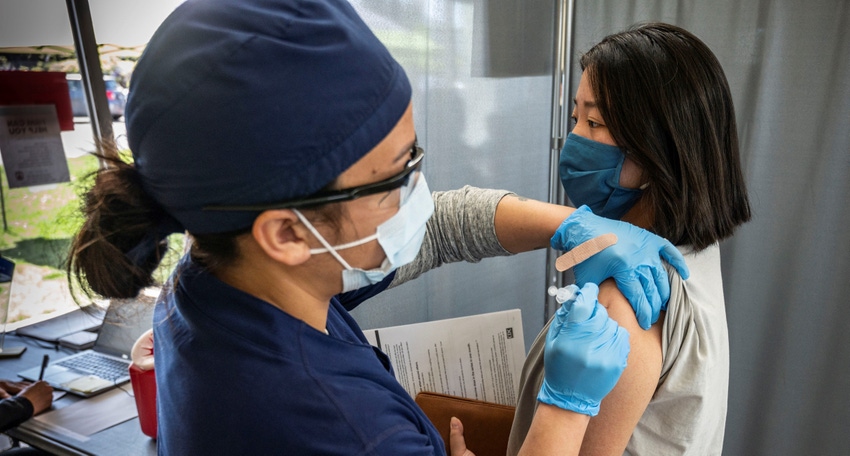March 24, 2022

It has been a busy month for the Equal Employment Opportunity Commission (EEOC) as it continues to provide guidance to employers on important pandemic-related issues. The EEOC is the federal agency tasked with overseeing enforcement of Title VII of the Civil Rights Act of 1964 (Title VII).
The two COVID-19-related topics recently updated as part of the EEOC’s “What You Should Know” guide are the Religious Objections to COVID-19 Vaccine Requirements (March 1, 2022) and COVID-19-related Caregivers/Family Responsibilities (March 14, 2022) sections.
An additional technical assistance document, The COVID-19 Pandemic and Caregiver Discrimination Under Federal Employment Discrimination Laws was also released on March 14th. This resource applies existing federal employment discrimination legal principles that involve caregivers to real-world COVID-19 workplace situations.
Key takeaways from each of these updates are provided below.
Religious objections to vaccines
There are no “magic words” that an employee must use when communicating with their employer about a religious objection to receiving a COVID-19 vaccination. However, employees are required to “explain the conflict and the religious basis for it.”
An employee’s request must be based on a “sincerely held religious belief, practice or observance.” Employers with an “objective basis for questioning either the religious nature or the sincerity of a particular belief” may make a limited factual inquiry seeking additional supporting information.
An employee’s sincerity in holding a religious belief is “largely a matter of credibility.” Employers should keep in mind that several factors, alone or in combination, may impact that credibility (e.g., has the employee acted in a manner inconsistent with the professed belief or is the timing of the request suspect).
Employees and applicants should be provided with information about the proper procedure for requesting a religious accommodation and whom to contact.
Given the “extraordinary circumstances facing employers and employees due to the COVID-19 pandemic” the EEOC has made its own internal Religious Accommodation Request Form available for download.
The form must be edited and adapted for private use.
The EEOC guidance on this issue also includes cautionary words for employers who question the sincerity of the employee’s religious belief, practice or observance:
“Newly adopted or inconsistently observed practices may nevertheless be sincerely held.”
“No one factor or consideration is determinative;” and
“Employers should evaluate religious objections on an individual basis."
Employers who have reason to suspect the sincerity of a religious belief, practice or observation should consult with legal counsel before denying a requested accommodation.
COVID-19-related caregivers/family
Caregiver stereotyping can result in violations of Title VII. Employers must be mindful of avoiding gender-based assumption about who may have caregiving responsibilities.
Caregiver discrimination can also be unlawful if it is based on the caregiver’s association with an individual (receiving care) who has a disability or falls under any other protected classification (e.g., race, age, ethnicity).
Caregiver protection is provided to workers with any type of caregiving responsibilities (e.g., children, spouses, partners, relatives, or others).
The COVID-19 Pandemic and Caregiver Discrimination Under Federal Employment Discrimination Laws document includes references to several different types of potential pandemic-related caregiver discrimination issues. For example, employer inquires about family members with COVID-19 or related symptoms, addressing whether an employee is entitled to a reasonable accommodation to avoid potential exposure to a high-risk family member and COVID-19 pregnancy accommodation-related requests.
Members with questions about COVID-19-related accommodation requests should contact Western Growers. For a more in-depth discussion on responding to religious based accommodation requests: Religious Accommodation – Are There Limits? (Oct. 2021 WG).
[Teresa McQueen is corporate counsel for Western Growers.]
Source: Western Growers, which is solely responsible for the information provided and is wholly owned by the source. Informa Business Media and all its subsidiaries are not responsible for any of the content contained in this information asset.
You May Also Like




